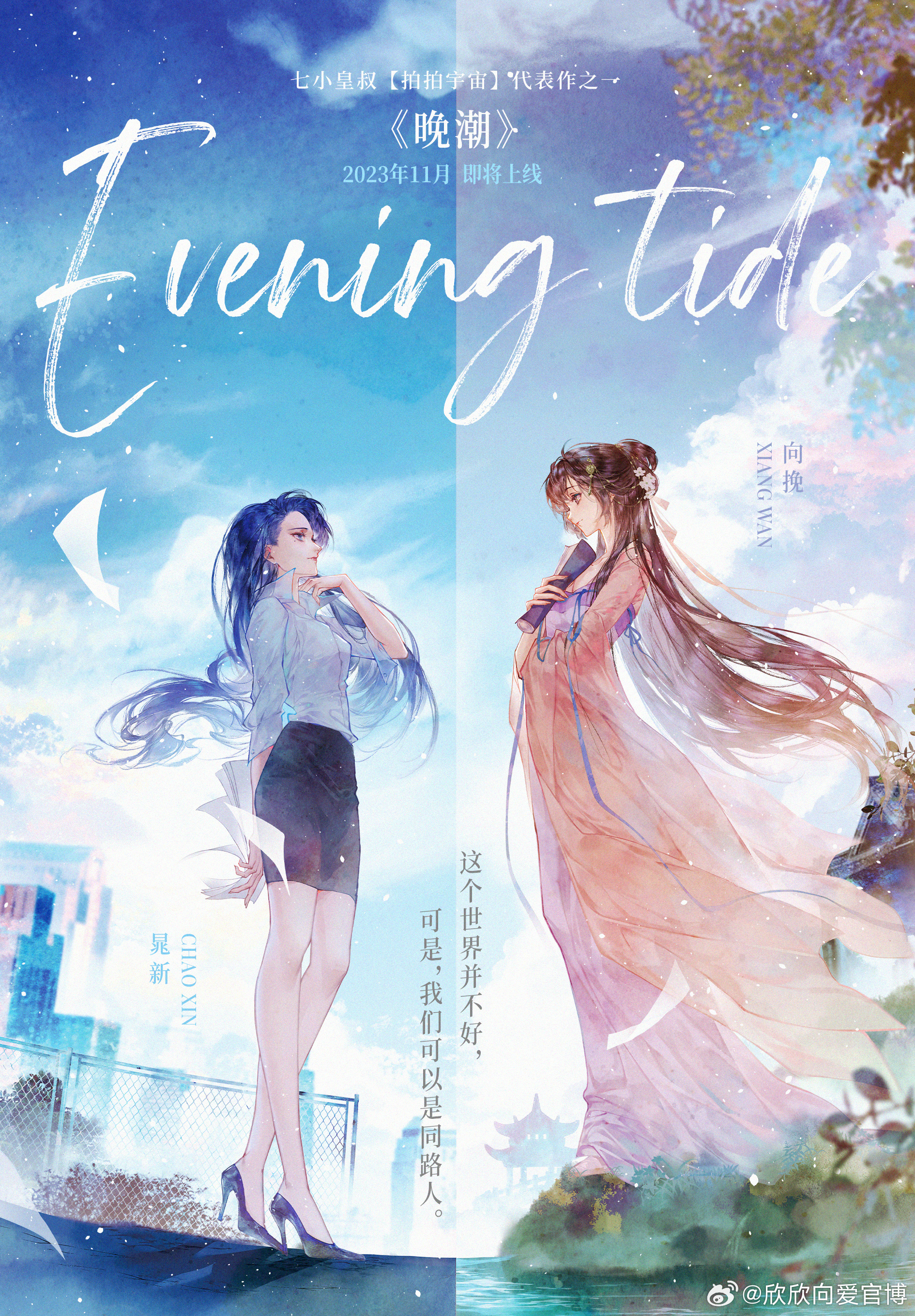This post is meant to provide a brief introduction to baihe as a literary genre and a starting point for those seeking to get into it. I consider baihe to be a distinct genre of its own, though I'd be hard-pressed to articulate its precise contours (or even general contours). Certainly I have a sense of baihe as being distinct from what I would classify as 'serious queer/lesbian literature', though here I'm hampered by my lack of knowledge about queer literature written in Chinese.
Yan Geling's (严歌苓) novella
White Snake might conceivably count as one, but I'm simply too unfamiliar with the genre as a whole to provide any sort of sensible comment. I also have a sense of baihe as being in conversation with its Japanese counterpart
yuri, but again I'm woefully ignorant of yuri as a genre.
Baihe often seems to be regarded by international fandom as a sort of distaff counterpart to
danmei (m/m romance), but my sense is that mainland baihe readers (and potentially other Sinophone audiences in Asia) do not really see baihe and danmei as having particularly close links beyond the fact that they deal with same-gender romance. In fact, I I've seen more mainland baihe readers say they also read yanqing (f/m romance, whose popularity runs rings around both danmei and baihe) than baihe readers say they also read danmei. There is also limited overlap between baihe and danmei in terms of their authorship. There are more authors who write yanqing+baihe than authors who write danmei+baihe, and I can think of no major danmei author who also writes baihe, or vice versa. To date, the only author I can definitively point to who writes both danmei and baihe (as well as yanqing) is
Xiao Wu Jun (小吾君) who, while not unknown, is not exactly a major author. There seems to be limited overlap between baihe and danmei in terms of popular subgenres as well. Again, I'm not very familiar with danmei as a genre, but my sense is that a good number of the popular works are historical novels or xianxia novels, while a significant proportion of popular baihe novels are contemporary romances (which would, I think, be legible to a reader of Western genre romance as such). In terms of sheer audience numbers, baihe is very much regarded as a niche genre relative to danmei (quite popular) and yanqing (massively popular).
Having impressed you with my vibes-based ramblings and multiple admissions of ignorance, let's get down to what I
do know about the genre. Under the headings below, you'll find information about where baihe novels are published, a list of major baihe authors (plus a few who specialise in specific niche subgenres), a list of notable works that I think provide a useful foundation for understanding the genre, and information about adaptations of baihe novels. A major caveat is that I'm focusing almost exclusively on works by mainland Chinese authors, both because these make up the greatest proportion of baihe novels and because I'm most familiar with them. There are also baihe novels by authors from elsewhere in the Sinosphere, most notably Taiwan, but I am much less familiar with them, so that will need to be the subject of another post (preferably by someone who knows the field much better than I do!)
( Baihe novels and where to find them )( On the state of baihe novel translations )( Top 10 current baihe authors )( 10+ baihe novels that are helpful for understanding the genre )( A note about adaptations )I am grateful to xiaozhu for providing valuable input (and making sure I didn't say anything too obviously wrong) into this post. Read their translation of baihe showbiz tragedy Burn
here. Special thanks to ![[personal profile]](https://www.dreamwidth.org/img/silk/identity/user.png) superborb for doing the thankless grunt work of proofreading and checking each link.
superborb for doing the thankless grunt work of proofreading and checking each link. Pre-orders opened today for the contemporary baihe novel Evening Tide (晚潮, pinyin: wanchao) by Qi Xiao Huang Shu (七小皇叔), author of the hit tomb-raiding baihe novel Reading the Remnants (问棺 , pinyin: wen guan). This is the second in her recent (also massively popular) trilogy of novels focused on the lives and loves of a group of audio drama voice actresses. The main pairing in Evening Tide consists of Xiang Wan, a newcomer to the audio drama scene who has time-travelled to the twenty-first century from imperial China (it makes a sort of sense in context), and Chao Xin, a veteran voice actress.
Pre-orders opened today for the contemporary baihe novel Evening Tide (晚潮, pinyin: wanchao) by Qi Xiao Huang Shu (七小皇叔), author of the hit tomb-raiding baihe novel Reading the Remnants (问棺 , pinyin: wen guan). This is the second in her recent (also massively popular) trilogy of novels focused on the lives and loves of a group of audio drama voice actresses. The main pairing in Evening Tide consists of Xiang Wan, a newcomer to the audio drama scene who has time-travelled to the twenty-first century from imperial China (it makes a sort of sense in context), and Chao Xin, a veteran voice actress.